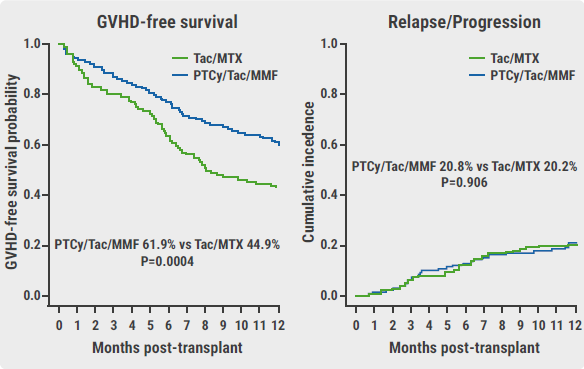https://doi.org/10.55788/baeb012e
The ALIFE study (ISRCTN58496168) suggested that LMWH, in combination with aspirin, may reduce recurrent miscarriage in women with inherited thrombophilia. To assess whether LMWH alone may decrease miscarriages in women with inherited thrombophilia, the randomised-controlled ALIFE2 study (NTR3361) was designed [1]. The trial, presented by Prof. Saskia Middeldorp (Radboud UMC, the Netherlands), included 326 women with inherited thrombophilia and a history of at least 2 miscarriages, who were actively trying to conceive or less than 7 weeks pregnant. The participants were randomised 1:1 to standard pregnancy care or to standard pregnancy care plus LMWH once daily until delivery. Aspirin was used as co-medication in 11% of the participants. The primary endpoint was the rate of live births.
The rate of live births was comparable for the 2 study arms (LMWH 71.6% vs control 70.9%; adjusted OR 1.08; P=0.770). Furthermore, the rate of adverse events was higher in the LMWH arm than in the control arm (43.9% vs 26.5%; OR 2.17; P=0.0016). According to Prof. Middeldorp, this difference was mostly caused by an increase of bruising, skin reaction at injection site, and minor bleedings in the experimental arm.
In conclusion, the authors do not advise to treat women with inherited thrombophilia with LMWH to prevent miscarriage.
- Quenby S, et al. Low-Molecular-Weight Heparin Versus Standard Pregnancy Care for Women with Recurrent Miscarriage and Inherited Thrombophilia (ALIFE2): An Open-Label, Phase III Randomized Controlled Trial. Late-Breaking Abstract 5, ASH 64th Annual Meeting, 10–13 December 2022, New Orleans, LA, USA.
Copyright ©2023 Medicom Medical Publishers
Posted on
Previous Article
« Efgartigimod successful in immune thrombocytopenia Next Article
Novel therapy may replace standard-of-care prophylaxis for GVHD »
« Efgartigimod successful in immune thrombocytopenia Next Article
Novel therapy may replace standard-of-care prophylaxis for GVHD »
Table of Contents: ASH 2022
Featured articles
Acute Lymphoblastic Leukaemia
Blinatumomab candidate for standard-of-care in newly diagnosed B-ALL
High-dose methotrexate or standard interim maintenance in young patients with ALL?
Acute Myeloid Leukaemia
Excellent results for triplet regimen in FLT3-mutated AML
MRD by qPCR prognostic of outcomes in venetoclax-treated NPM1-mutated AML
Promising results for triplet therapy with magrolimab in AML
Should we use intensive chemotherapy prior to allo-HCT in relapsed/refractory AML?
Chronic Leukaemia
Zanubrutinib wins battle of BTK inhibitors in relapsed or refractory CLL/SLL
Ibrutinib plus venetoclax displays long-term benefits in CLL
Multiple Myeloma
Talquetamab further investigated in heavily pre-treated MM after promising phase 2 data
Promising results of elranatamab for MM in phase 2 MagnetisMM-3 trial
Deep and durable responses for quadruple therapy in smouldering MM
Ultra-sensitive MRD assessment in MM with BloodFlow
CAR-Hematotox score proves useful in relapsed/refractory MM
Head-to-head: VMP versus Rd in transplant-ineligible MM
Lymphoma
Ibrutinib added to ASCT improves clinical outcomes in mantle cell lymphoma
High-dose chemotherapy plus ASCT superior to standard immuno-chemotherapy in primary CNS lymphoma
Odronextamab has considerable anti-tumour effects in relapsed/refractory diffuse large B-cell lymphoma and follicular lymphoma
Excellent results for AFM13-complexed NK cells in CD30-positive lymphoma
CAR-Hematotox score predicts toxicity, infections, and clinical outcomes in MCL
Myeloproliferative Neoplasms
Efgartigimod successful in immune thrombocytopenia
INCA033989: novel investigational agent for CALR-mutated MPN
Ruxolitinib mediates clonal evolution of RAS pathway mutations in MPN
Immune Thrombocytopenia
Long-term risk for haematologic disease in persistent, isolated mild thrombocytopenia
Various Topics
C1 inhibitor deficiency linked to thrombosis
Durable responses to gene therapy in haemophilia A
Long-term benefits from beti-cel in transfusion-dependent β-thalassaemia
Neutrodiet: non-restricted diet is the preferred option after SCT
Iptacopan offers solution for patients with PNH and residual anaemia after standard-of-care
Novel therapy may replace standard-of-care prophylaxis for GVHD
LMWH does not result in higher live birth rates in women with inherited thrombophilia
Related Articles
February 20, 2023
Neutrodiet: non-restricted diet is the preferred option after SCT

February 20, 2023
Novel therapy may replace standard-of-care prophylaxis for GVHD
February 20, 2023
Durable responses to gene therapy in haemophilia A
© 2024 Medicom Medical Publishers. All rights reserved. Terms and Conditions | Privacy Policy
HEAD OFFICE
Laarderhoogtweg 25
1101 EB Amsterdam
The Netherlands
T: +31 85 4012 560
E: publishers@medicom-publishers.com

